Search Results
Showing results 1 to 20 of 21
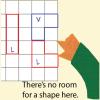
Fill It Up
Source Institutions
Players take turns adding shapes made of three squares to a grid. They try to fit their shapes on the grid in a way that blocks the other player.
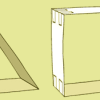
Canine House of Cards
Source Institutions
This simple construction activity teaches the importance of architectural structure. Learners build and test designs for a paper "doghouse" strong enough to hold the weight of a jumbo dog biscuit.
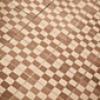
Twisted Tesselations
Source Institutions
In this activity (on pages 41-47 of PDF), learners explore tesselating geometric patterns (repeated shapes, similar to the art of M.C. Escher).
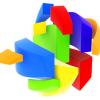
Crazy Shapes
Source Institutions
In this activity, learners cut a shape into two equal sized pieces and use their knowledge of geometry and space to prove that the two parts are equal.
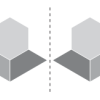
Reflections
Source Institutions
In this activity, learners play a game and use pattern blocks to explore mirror images and reflection.
Six Squares: Geometry and Design
Source Institutions
In this activity, learners take a turn contributing a closed figure made of six squares to a large grid; each must be different from all the others on the grid so far.
The Right Fit
Source Institutions
In this math activity, learners trace their hands and estimate the number of beans that can fit into their hand tracings. Then, learners glue the beans to the tracing to test out their estimations.
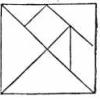
Tricky Tangrams
Source Institutions
In this activity (on pages 49-54 of PDF), learners play with tangrams, a set of triangles, squares and a parallelogram that can combine into a larger square as well as all sorts of other shapes.
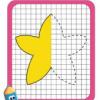
Symmetry Fold-Overs
Source Institutions
In this math activity, learners experiment with the concept of symmetry.
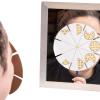
Make an Animation
Source Institutions
In this activity, learners make a device called a phenakistoscope, which displays a continuously looping animation consisting of images drawn onto a spinning disc.
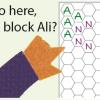
Touch and Go
Source Institutions
As learners play this game, they develop logic, geometry, and spatial visualization skills. Players start out with an empty hexagonal grid.
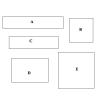
Geometry and Spatial Relations: It's a Perfect Fit
Source Institutions
In this three-part math activity, learners explore shapes. In part one, learners identify, describe, and classify two-dimensional shapes.
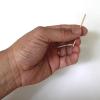
Toothpick Patterns
Source Institutions
In this hands-on activity, learners use toothpicks to build different triangles and squares and then use the toothpicks to build and solve some tricky shape puzzles.
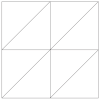
The Four-Square Quilt
Source Institutions
In this activity, learners arrange triangles together to make patterns to create paper quilts. Learners experiment with arranging the triangles in different ways to make various designs.
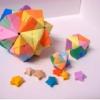
Paperfolding Polyhedrons
Source Institutions
In this activity (on pages 55-66 of PDF), learners fold paper into origami shapes and then combine several identical shapes into a three-dimensional structure.
Building Houses: Build a Cardboard Tube House
Source Institutions
Build a house you can fit inside, using cardboard tubes.
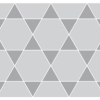
Exploring Tessellations (Grades K-2)
Source Institutions
In this activity, learners repeat patterns in two and three dimensions to create tessellations. This activity combines the creativity of an art project with the challenge of solving a puzzle.
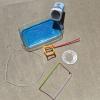
Burst a Bubble
Source Institutions
In this activity, learners will create their own bubble solution. Learners will explore chemistry, geometry and trial and error through this activity.
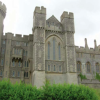
Castles Inside and Out
Source Institutions
In this three-day lesson, learners identify two-dimensional shapes used in castle construction, create a castle collage using assorted shapes, and design tapestries using repeated patterns of color, s

100 Puzzles
Source Institutions
In this activity, learners find as many combinations of a hundred as they can using various puzzle pieces from a hundred square grid paper.
